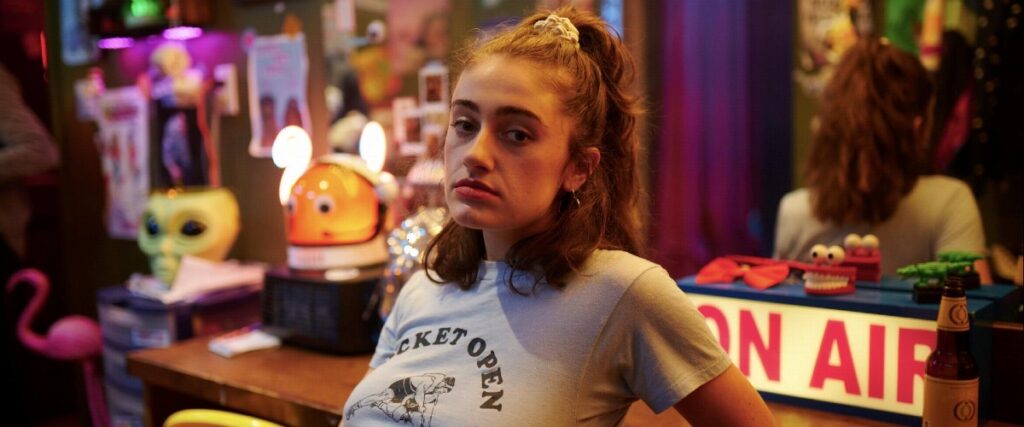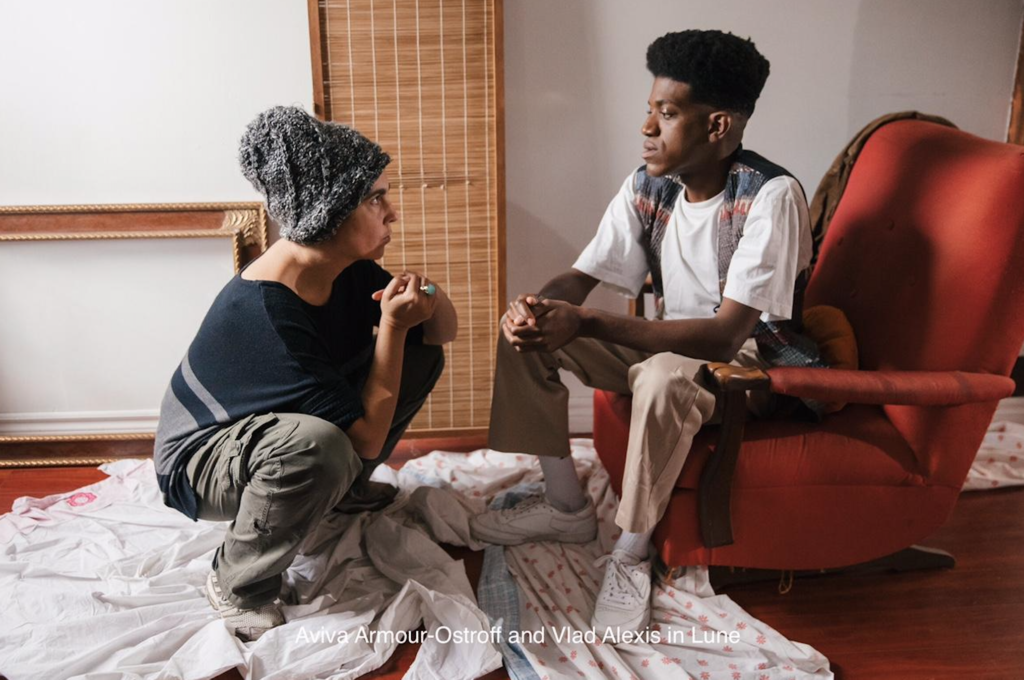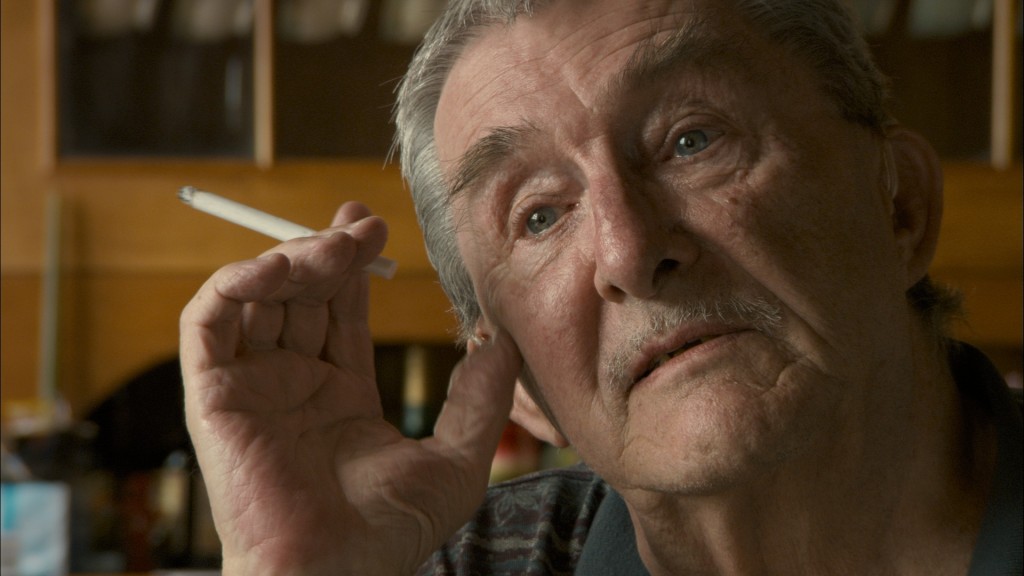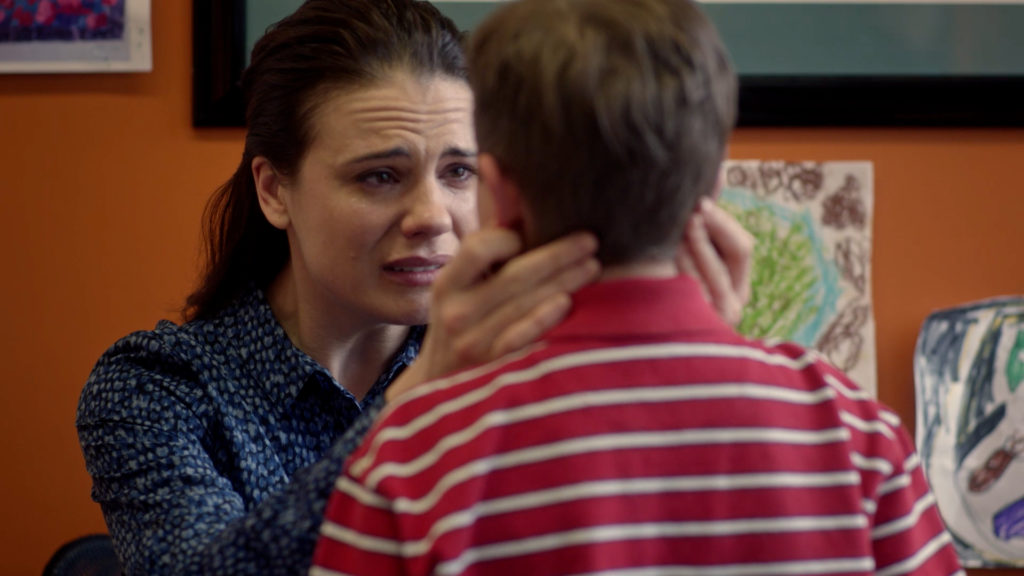
In the Canadian indie I Used to Be Funny, Sam is a standup comedian (played by Rachel Sennott, a real life standup comedian). Sam has been suffering the effects of PTSD for a year, and is existing with the kindness of her two comedian roommates. She’s been unable to work, write or leave the house, and it’s a major achievement to take a shower.
Through flashbacks, we learn how she got to her present condition. Sam had taken a day job as a nanny for a 13-year-old girl, Brooke (Olga Petsa). Brooke is a pistol anyway, but her mom is on her deathbed and her father is stricken with both grief and the bewilderment as to how to meet the needs of his teenage daughter, who is already troubled by the mom’s illness and soon to go off the rails completely. At first Brooke responds encouragingly to the hip young Sam. But then, everyone’s life is upended by the traumatic event. (That event is depicted over an hour into the film, but the audience has surely guessed what it is by then. )
Will Sam work through her PTSD and become functional again? Will Brooke be lost to her self-destructiveness?
I Used to Be Funny is the first feature for television writer-director Ally Pankiw. Pankiw accurately portrays the disabling pain of a PTSD sufferer and the helplessness of adults dealing with an out-of-control teenager. Pankiw finally gets us to a redemptive ending, but there’s a lots of emotional pain and drama on the way.
In case you forget that this is a Canadian film, you’ll notice that the comedian roommates, the estranged boyfriend, Brooke’s aunt and the folks at the comedy club are exceedingly nice. Even the troubled teen, a punk drug dealer and sexist cops are very nice for their types.
I watched I Used to Be Funny because I so enjoyed Sennott’s performance in Saturday Night. Now we know that Sennott has the emotional range to play the extremes of the spectrum – a depressive here and a sexy and masterful creative in Saturday Night. Both of those characters are quick-witted, and Sennott is very believable, of course, as a head comedy writer and as a standup comic.
I Used to Be Funny is streaming on Netflix, Amazon, AppleTV, YouTube and Fandango.











